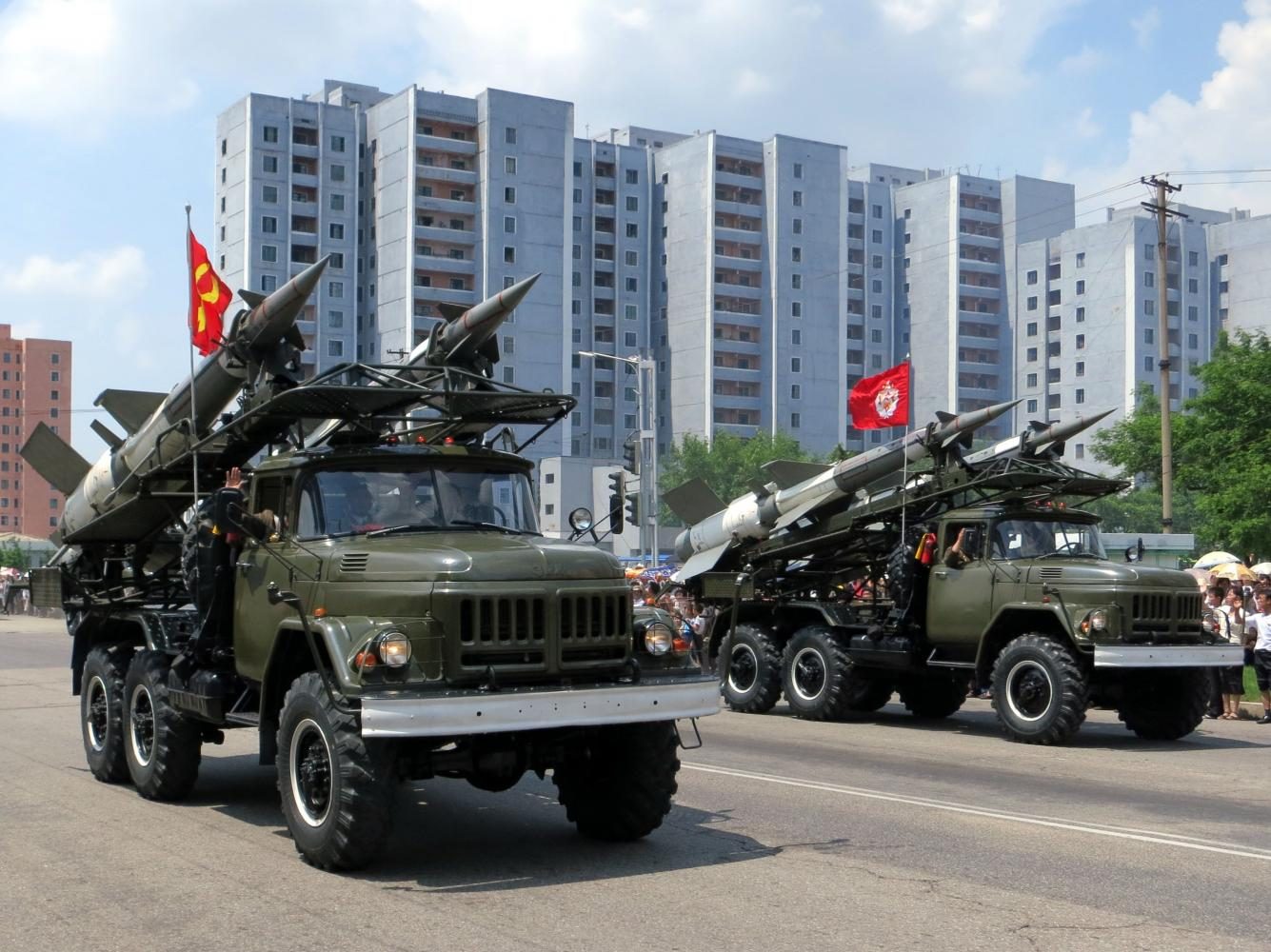World at a Glance: What You Need to Know About North Korea
May 17, 2017
North Korea has been a huge political issue for the United States that dates all the way back to the Korean War when the United States backed South Korea. Both the United States and North Korea have their reasons why they don’t like each other, and recently this issue has becoming more and more tense. During both the Bush and Obama administrations, the main issue that the United States faced and is still facing today is that North Korea won’t stop its production of nuclear and ballistic missile capabilities.
This topic can be very complicated to understand, which explains why the United States has been dealing with North Korea for the past sixty-five years. Here is a short breakdown of what has been going on with North Korea.
Q: Why is the relationship between the United States and North Korea so bad?
A: Our relationship with North Korea is so bad, at least partly, because we supported South Korea during the Korean War. We also have about 23,500 U.S. troops stationed in the South as of today. Also, North Korea has recently been more aggressive in its pursuit of a nuclear-armed intercontinental missile.
Q: Is North Korea an actual threat to the United States?
A: As of right now, the threat is very low. They are already under economic sanctions and military pressure, and North Korea presumably won’t attack the U.S. because it would likely end in the destruction of its own country. North Korea also does not yet have the technical ability to launch an intercontinental attack.
Q: Why is North Korea testing nuclear weapons?
A: They are testing nuclear weapons to enhance their status on the world stage, and because they are trying to “intimidate the South Korean, Japanese, U.S., and Chinese governments into making economic concessions to revive their economy or provide food aid.”
Q: What is the Nuclear Nonproliferation Treaty and why does it matter?
A: The Nonproliferation Treaty (NPT) is an international treaty that is supposed to prevent the spread of nuclear weapons and technology. There are currently 191 countries that have signed this treaty.
Q: Why did North Korea withdraw from the NPT Treaty?
A: North Korean officials came out live on television in 2003, saying that “We can no longer remain bound to the NPT, allowing the country’s security and the dignity of our nation to be infringed upon.” Their main reason to withdraw was because what they say as U.S. aggression. They were worried that their country would be put in danger.
Q: Should we be scared of a potential attack from North Korea in a couple of years?
A: Right now, we know that they don’t have the capability of putting a nuclear warhead on an intercontinental ballistic missile to be able to reliably hit any part of the United States or any of its territories; however, they may develop that technology within the next few years.
Q: What should we expect in the coming months from North Korea?
A: We will definitely be seeing more North Korean missile tests because just in 2017, they have already launched five, which is more than the past three years combined.
There is way more to understand about the issue with North Korea, but the most important things that everyone should know have been mentioned above. The North Korean threat isn’t going away anytime soon, so it’s best to get familiar with this issue.
What questions do you have about North Korea? Let us know in the comments below, and we’ll do our best to respond.
Creative Commons photo source: https://www.flickr.com/photos/rapidtravelchai/9465931714






Joseph Kreitzberg • May 17, 2017 at 7:02 pm
What I’m curious about is how we deal with China’s support of North Korea. Since China wants a friendly nation to act as a buffer against western South Korea, and so they won’t support regime change. That being said , we can’t just let another nation commit human rights abuses and threaten nuclear war every other day. Maybe we could work with China to install a regime acceptable to them that doesn’t want to nuke us? Whatever we do, let’s just hope Trump manages to pull some sort of plan off.